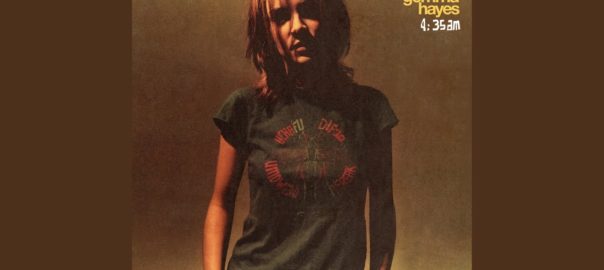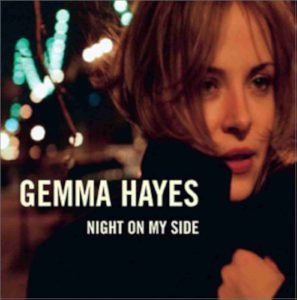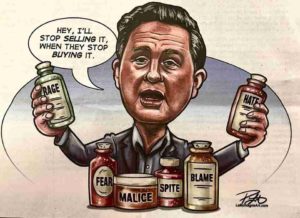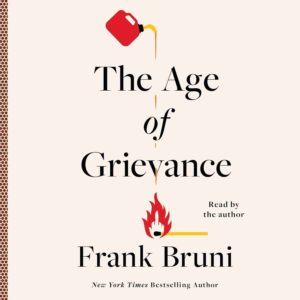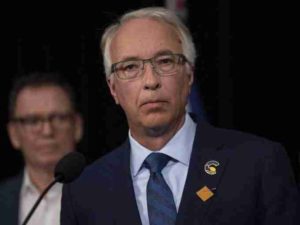
B.C. NDP ads that have not resonated with a public anxious for change — whatever change might mean.
The 2024 provincial election in British Columbia is proving to be a pivotal moment for the British Columbia New Democratic Party (B.C. NDP), as they seek to retain power under the goal-directed, activist leadership of Premier David Eby.
However, their campaign ads have faced criticism for failing to connect with the electorate, especially at a time when voters are deeply concerned about housing, inflation, and health care. As British Columbians head to the polls, with advance voting already underway, the B.C. NDP needs to urgently revamp their messaging to effectively counter the rising threat posed by the possible, and increasingly likely, election of a B.C. Conservative Party majority government on October 19.

To access the “John Rustad is a career politician” British Columbia New Democratic Party ad click here.
One of the B.C. NDP ads that has been running almost continually since long before the actual campaign got underway on September 21st, is the “John Rustad is a career politician, with a history of costing you more,” an ad that has driven CHEK-TV / Business in Vancouver Legislative reporter Rob Shaw around the bend.
Rob Shaw is anxious to point out that Mike Farnworth, B.C.’s Minister of Public Safety and Solicitor General before dissolution of the Legislature, has served in the Legislature dating back to 1997, when then B.C. NDP Premier Glen Clark appointed Mr. Farnworth Minister of Municipal Affairs and Housing — a full eight years before Mr. Rustad entered the Legislature, as the MLA for Prince George–Omineca.
Where does the B.C. NDP get off, then, calling John Rustad a “career politician”?

One of the main critiques of the B.C. NDP’s 2024 campaign ads is that they have failed to boldly and effectively address the key concerns of voters across British Columbia, particularly around housing affordability and rent control.
Let’s take a look at the “rent cap” legislation brought in by populist, working class B.C. NDP Premier John Horgan in 2019, in response to a B.C. Rental Housing Task Force report, written by and presented to the Premier by B.C. NDP Member of the Legislature representing Vancouver-West End, Spencer Chandra Herbert.
Prior to January 2019, the rent increase formula was inflation plus two per cent.
Premier John Horgan told a full session of the Legislature in the spring of 2019 that rent increases of inflation plus two per cent was “simply not sustainable for renters, many of whom are on fixed incomes, to see their rent increase by more than inflation each and every year.” Premier Horgan then brought in legislation that capped rents at the rate of inflation that was passed by the House.
By far the number one concern that has been expressed to VanRamblings, in the lines we’ve waited in at this year’s 43rd edition of the Vancouver International Film Festival, on the street when we’ve run into friends, or in coffee shops around town is the proposal of B.C. Conservative Party leader John Rustad to remove rent caps that he considers to be a burden to landlords.
One longtime friend and professional associate told VanRamblings the following:
“For the past 25 years, I have lived in an apartment in Burnaby, where the rent has gone up most years. Even so, thanks to the NDP’s rent cap legislation — given how out of control the rental market has become in recent years — my rent is still an affordable $850 per month, given my long tenure. The resident who recently moved into the apartment next door to me pays the market rent for his apartment of $1575 a month. Should John Rustad revoke the NDP’s rent cap legislation, I expect that my rent will go up 10% a year until I am paying more than double what I’m paying now, as the landlord increases my rent to the market rate. I don’t know what I’d do in such a circumstance. I’d be in dire, unconscionable straits, and would have to consider moving out of town.”
The story above is writ large across the entire province of British Columbia, as 600,000 renters would find themselves in the same dire circumstance as my friend.
The response of the B.C. NDP “not on your side government” to the egregious circumstance that will befall renters should a John Rustad-led Conservative Party be elected to government: a namby-pamby ad that glosses over the rent cap removal topic, underplaying its impact — if it addresses the consequences of the rent cap removal (which it utterly fails to do) at all — should John Rustad’s commitment to the landlord class — over renters — come to pass post the October 19th election.
That’s our David Eby for ya.
Playing it right down the middle, doesn’t want to appear too radical, doesn’t want to upset landlords — heaven forbid! — while he leaves hundreds of thousands of renters to hang out to dry. Mr. Eby: you are going to have to decide whose side you’re on: the landlord class, or all those British Columbians who pay rent.
What’s it gonna be, sir?
The B.C. New Democrats, with a little more than two weeks to go before Election Day, are going to have to decide whose side they’re on, in a way their lacklustre campaign has utterly failed to do as the 2024 provincial election has unfolded.
Enough with those ineffectual ads the B.C. NDP have run the first two weeks of the campaign, ads that woefully ill serve the interests of potential B.C. NDP voters.
What the B.C. NDP must do: run saturation ads featuring British Columbians from across the province, addressing in stark terms the impact that removal of the rent cap will have on their family: British Columbians in every region of the province, British Columbians in every age and cultural demographic, real “live” human beings — you know, the British Columbians the B.C. NDP campaign has steadfastly ignored to date. Stop with this arrogant, condescending top-down nonsense.
Does the B.C. NDP brain trust not see how wildly effective the ads are that are being run by the Democratic Party in Washington state, just below our border, ads that really resonate, ads that always, always, always feature Washingtonians warning their fellow citizens about the perils that would occur should Republicans be elected to lead state government? Why are we not seeing those kinds of ads here?
Let’s hear from real British Columbians — not an anonymous voice over in an ad.
All ads to be run by the B.C. New Democrats in the final two weeks of the campaign must feature British Columbians warning their fellow citizens on what a John Rustad government would mean to the quality of their lives, and their children’s lives, covering a range of topics: climate change — which Mr. Rustad effectively denies, John Rustad’s plans to ban books in public schools to stop what he considers to be “indoctrination” by teachers, the revocation of the SOGI 123 legislation that protects vulnerable tweens and teens enrolled in our public education system, a John Rustad-led government that would not build affordable housing co-ops on Crown land as proposed by David Eby’s NDP government, and so very much more.

Make no mistake: vulnerable British Columbians are going to die, who otherwise might live, should John Rustad be elected to government come October 19th.
That is a message that will resonate with voters, if told properly and bluntly.

